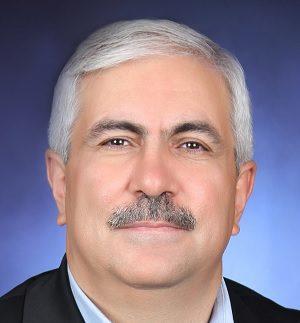Q1. What was your company’s unique approach in integrating technology to achieve UN’s Sustainable Development Goal (SDG)?
According to figures released by the FAO, between 2018 and 2020, an average of 8.9 percent of the world’s population suffers from undernourishment and food insecurity, with prevalence of up to 19 percent in parts of Africa and the Middle East. The reasons for this situation include hot and dry weather, lack of fresh water and poor soil for agriculture. In such a situation, our initiative to achieve the second goal of sustainable development and zero hunger is the use of mushrooms.
Fungi have two unique properties among creatures. First, by creating a vast network of mycelium, they are the largest organisms on Earth, and second, by being able to secrete very strong acids and enzymes, by being able to digest them externally, they can digest all the organic waste around them, and convert it into other organic matter, which is useful for humans and other living organisms.
Our ancestors have recognized the use of many of them, from the conversion of milk into yogurt to the production of bread, wine and vinegar, as well as a variety of antibiotics that have saved the lives of millions of people.
Although mushrooms can help us achieve the 17 goals of the UN SDG, given the importance of zero hunger, we are most focused on this issue. To provide the food needed by human consumption, we have turned to the production of more agricultural and livestock products, and to produce more, a variety of chemical fertilisers and pesticides that pose many risks to human health have been used.
Everything that is a waste in agricultural production is the raw material needed for the production of edible mushrooms, so agricultural waste can be turned into healthy food for us. By enriching edible mushrooms with vitamin D and trace elements such as copper, iron, zinc, selenium, manganese and magnesium, we have turned them into supper foods to satisfy hidden hunger.
Mushrooms grow rapidly, require very little water to produce, unlike plants and animals, that consume large amounts of water for their metabolism, for instance the amount of water used to produce one kilogram of beef is nearly 5000 liters, wheat 3000 liters, Milk 1000 liters, and potatoes 500 liters, while mushrooms need less than 1 liter per kilogram. The fixed cost for mushroom production is very low in comparison to other small and micro-economic industries, and this business can also be implemented in home units. Wood fungi mushrooms can be produced completely organically.
Q2. What are some examples of SDG-focused projects that your company is currently working on?
Due to the high agricultural production and also the significant waste that is left from in Canada and can be one of the environmental problems in this country. By producing phase 2 and 3 substrates (meaning substrate prepared and inoculated by mushroom spawn) in the production of mushroom, especially wood fungi, and exporting it to African and Middle Eastern countries, which are hot and dry regions and also have a shortage of fresh water, Sarin Fam Sabz Company builds mushroom production units (in 40-foot containers) in which they have a special design instead of fresh water. Sea salty water is used, and by this technology, A significant amount of fresh water is produced for drinking, which will be about 6000 liters per month, as well as about 4000 kg of king oyster mushrooms, which have a very high nutritional value, and about 6000 kg of animal feed (goat) is produced, which can provide about 70 head of livestock. As well as another by-product which is sea salt and will have good economic value.
Also, this company, in cooperation with the Research Institute of the Ministry of Energy and Multidisciplinary International Complex (MIC) KNT University, is researching and commercializing specific filters by fungi (mycofiltration), is a new method in the filtration of municipal sewage, agricultural and industrial effluents that is in the research and commercialization stage.
Q3. What are the most difficult challenges your company and other companies face generally in the implementation/adoption of new sustainable technology?
New initiatives and plans for sustainable development goals, like many new ideas, confront challenges. In fact, in some cases, such plans can change the game or even shift the paradigm. In this regard, actions and activities that are not effective due to inertia in accepting change to resist new ideas, and always the owners of new ideas have challenges with this resistance.
New projects require investment, and even if they start by small investment, there is probably a failure of their project, and this issue which will be much more difficult in countries with low GDP due to economic problems.
New ideas need to be invested in research and development, and because they are risky, investors’ inclination towards them decreases. Another problem we confront, especially in developing countries, is the lack of legal infrastructure for the intellectual property of the idea and this issue frustrates innovators.
Q4. Tell me about a time your sustainable tech helped another company realize their SDG goals.
Existence of industries and basic production methods can help the growth of other industries. More than 90% of the economy of different communities depends on small and medium enterprises. Sarin Fam Sabz Company established the first laboratory and workshop for the production of mother culture & spawn (mushroom seeds) in Iran in 2009 and due to the supply of spawn required, this development increased the production capacity of mushrooms in small and medium production units of edible mushrooms in Iran and growth It became very acceptable and the production of spawn, as a main input in mushroom production, became completely self-sufficient in Iran.
Q5. What is the biggest challenge your company has handled while enabling your sustainable tech accessible to different communities?
Due to economic sanctions and problems with the exchange of goods and money, it is clear, there are export restrictions for accessing our products by other communities. There is another problem with cumbersome administrative rules and regulations, especially in the export sector. Also a significant difference in prices and costs of production and services in different communities, is a serious limitation, which of course can be a unique opportunity.
Q6. Cost-effective sustainable tech can be lifesaving and planet-saving approach. What actions your company takes to make your sustainable tech economical and a fit for the large-scale adoption?
The idea and goal of our company is to turn everything all the agricultural waste into useful products. In countries with big agricultural industries, agricultural waste is one of the main problems, and with the production of phase 3 substrate, this waste can be used as raw material in mushroom production and create significant added value. By exporting this product to countries that are due to hot and dry climate and lack of fresh water and also poor soil for agricultural production, this innovative technology of Sarin Fam Sabz Company, in addition to use of sea salt water for mushroom production, will produce more than 40%, significant amount of fresh water is produced which can provide the required drinking water and in addition, provide the same proportion of animal feed and also enrich soil and turning sandy soil into good agricultural soil. We call this new system a Mushroom Machine that is produced with different economical capacities.
Q7. What do you believe will be a global, long-term, impact of your sustainable tech integration?
As it was explained before, fungi have saved lives on this biosphere in different periods of Earth’s history, and paying attention to the mushroom production industry as food security, especially super food and healthy and cheap food, as well as environmentally friendly can control hunger and help achieve the goal of zero hunger in the UN Sustainable Development Goals. In addition, there are other side values in relation to the mushroom industry, which can be the filtration of agricultural and industrial effluents, production of products such as leather and packaging, production of biofertilizers, production of completely natural insecticides, improvement of forests and many other values can be mentioned.
Q8. What’s your vision for the sustainable tech industry and your company’s role in it?
The horizon of the mushroom industry in the world is very wide and exciting, and Sarin Fam Sabz Company creates innovations and new ideas every day during its 20 years of activity, and we anticipate that in the coming years, the mushroom industry will create a great change in various industries.
Industries that are environmentally friendly and economical enough to help us achieve the 17 Sustainable Development Goals.
With great change comes great opportunities.
Saed Harsini
Managing Director,
Sarin Fam Sabz.






















